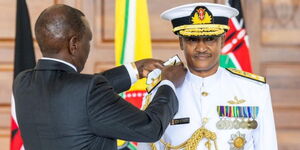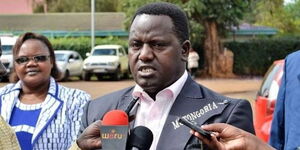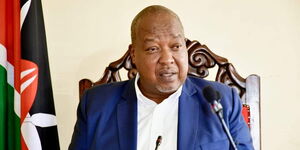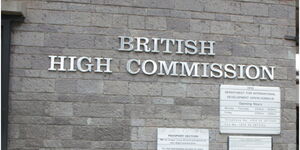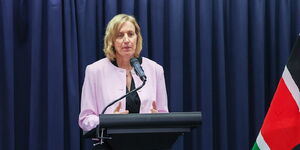The Kenya National Highways Authority (KeNHA) has not approved the feasibility study submitted to it by infrastructure investment company Everstrong Capital for the construction of the Nairobi-Mombasa expressway.
Everstrong Capital, through its Senior Advisor Klyle McCarter, on Thursday, May 29, clarified that the feasibility study was still under review by KeNHA, awaiting approval.
This follows reports that the Authority approved the 2300-page document, which details the project implementation process for the construction of the 440-kilometre highway.
According to McCarter, Everstrong Capital only announced that it submitted the feasibility study to KeNHA, in full accordance with the Public Private Partnership (PPP) Act, but did not announce its approval.
The former US Ambassador to Kenya went ahead to state that Everstrong Capital neither stated nor implied, formally or informally, that President William Ruto's administration approved the project.
"The feasibility study is still under review by KeNHA and has not yet been approved. Everstrong announced only the submission of the Usahihi feasibility study to KeNHA, in full accordance with the PPP Act," McCarter clarified.
"There have been reports suggesting otherwise. While we are proud of the progress made, it's important to clarify that the study is still under review by KeNHA and has not yet been approved," he added.
In his announcement, McCarter stated that they were patiently waiting for KeNHA's approval and that they would share more updates with the public as soon as the approval is complete.
The clarification comes a month after Evertsrong Capital submitted its feasibility study report to KeNHA. The report covered technical, legal, financial, environmental, and social analysis of the project.
Private financing of over Ksh464 billion ($3.6 billion) is expected to be used in constructing the expressway, which would be one of the largest toll roads in Africa.
Once the construction is complete, the highway is expected to reduce travel time between two of the country's largest cities by 6 hours from the unusual 10.5 hours to 4 hours.
The project will not only serve motorists but will also focus on environmental sustainability through the introduction of wildlife corridors and renewable energy infrastructure.




